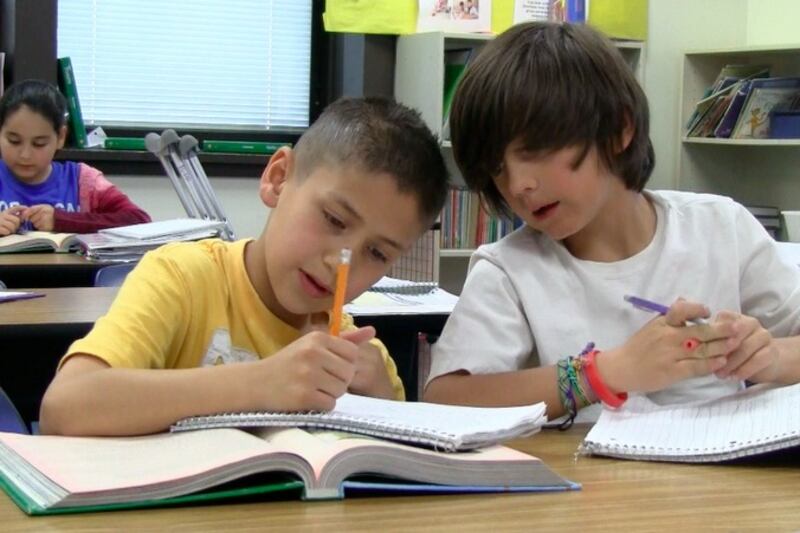An elementary school teacher in the Sheridan district south of Denver tested positive for COVID-19 just a week before students and staff are set to return to school buildings.
A spokesperson for the Sheridan school district confirmed the case and said the teacher is at home on self-quarantine. She reportedly has no symptoms, but got tested to be safe before the start of school.
The teacher had been in the school last week “for one day in order to get ready for the school year,” said Mark Stevens, the district spokesperson. One other staff member who worked with the teacher is also now in a voluntary quarantine.
Stevens said there is no change to the district’s reopening plans.
Roughly half the school districts in the Denver metro area are planning a remote-only start to the school year this month. Sheridan is among those still planning for in-person learning. The district’s plan calls for elementary students to return to classrooms five full days a week with a cap of no more than 12 students per room. Middle and high school students will also have the option to attend school every day in person, but will only be in buildings for half the day to allow for social distancing.
Teachers who reported to work Monday are concerned, said union President Matt Blomquist.
“My phone has been blowing up,” Blomquist said.
District officials did not respond late Monday afternoon to further questions about the case or implications for how school might play out this fall. State quarantine guidance issued last month calls for students and staff that have contact with someone who tested positive to stay home for two weeks but does not require the closure of school buildings, unless there is evidence of additional spread.
Teachers say there’s still confusion about some details of the plan, including whether students will be spaced 6 feet apart or just 3 feet and whether the district might have students eat lunch in the more spacious school gym, as teachers have suggested, instead of in their classrooms.
The teachers union is still trying to negotiate aspects of the district’s plan, which many teachers feel is unsafe.
Rebecca Renz, a special education teacher at the district preschool, found out Thursday that her request to work remotely had been granted, but isn’t quite sure how her job will work remotely.
She went to her school building Friday to pick up some things and said even just being there briefly felt uncomfortable. She’s worried for her students and coworkers who will be back there next week.
“I’m feeling a lot of guilt,” Renz said. “Now that I’m safe and my family’s safe, I feel like my coworkers aren’t.”






